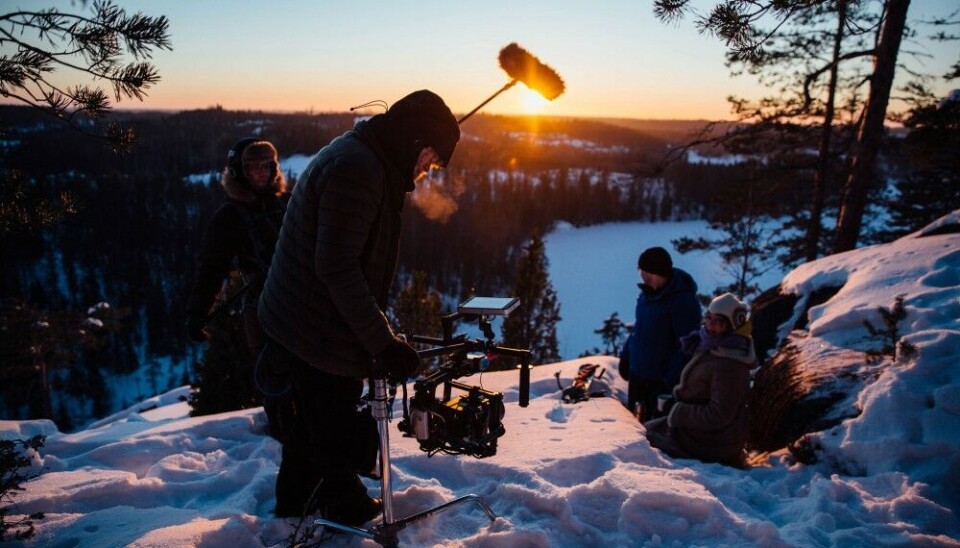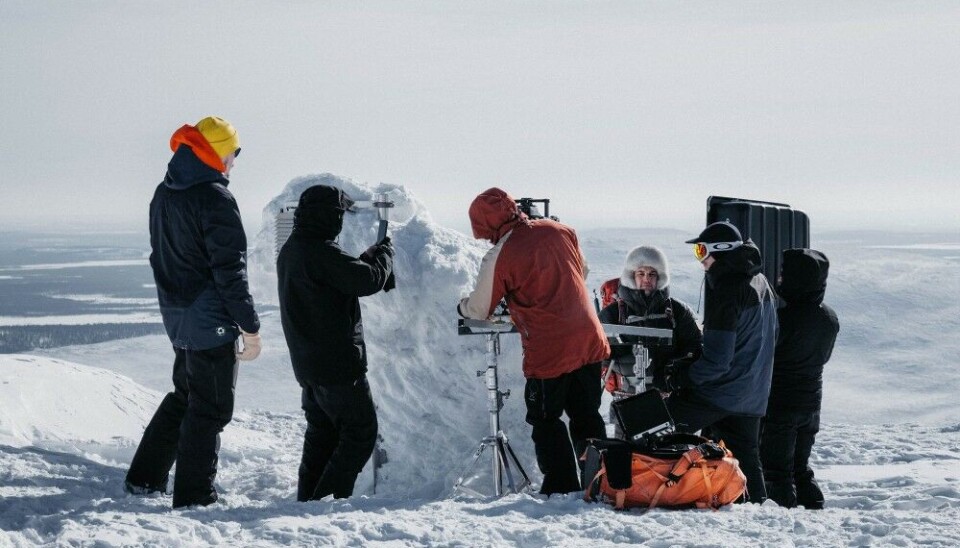
Finnish Lapland increasingly attractive to international film productions
Residents of the small town of Inari in Finnish Lapland have had to get accustomed to some changes to their everyday life this winter. With film production companies flocking to the area, there are many unfamiliar faces around in addition to the regular flow of tourists. Some might get lucky enough to spot international stars around, while others might get a chance to appear as film extras, or even secure jobs in the industry that traditionally is located in the south.
In recent years, Finnish Lapland has become increasingly attractive to international film productions. Currently there are large projects filming in Lapland; the third season of the international hit series Arctic Circle is being filmed in Inari municipality, and new show Critical Point is filming in Ylitornio. On top of these, Apple Tv’s Constellation series has recently wrapped up filming in Inari, bringing international stars to the small town.
The Barents Observer spoke with film commissioner from the Finnish Lapland Film Commission, Ida Tirkkonen to find out what makes Finnish Lapland so appealing. The three main selling points are ‘accessible nature, distinct seasons and unique light conditions,’ according to Tirkkonen. In addition, five international airports makes the area easy to access from all over the world. These are just some of the points the Film Commission advertises as it works to promote the area as a filming location, and helps production teams to get the best possible experience filming in Lapland.
Tirkkonen reckons that the film industry will only continue to grow in the future. According to her, Constellation is a good example of how large, international scale productions can be organised in the area with ease. “The Arctic region with functional services and infrastructure is a combination that works well,” she says.

And if the predictions of the film industry’s future are true, it will have a large impact on the area. “The productions use local services such as accommodation, restaurants, transportation, programme services and equipment rentals,” Tirkkonen explains. The already busy tourism area is getting considerably busier with film crews arriving - which is very good for the local businesses. “Constellation, for example, used €1.7 million in the area,” Tirkkonen continues. In addition, the productions use local workforce, allowing many professionals and those starting out in the film industry to work in Lapland.
Tirkkonen points out that these productions are giving more visibility to the Arctic region, while the development of the audiovisual industry in the North will employ the professionals who already live in the area. The film industry is traditionally hiring in the South and expanding film shoots in Lapland will be a welcome change to the film professionals of Lapland.













